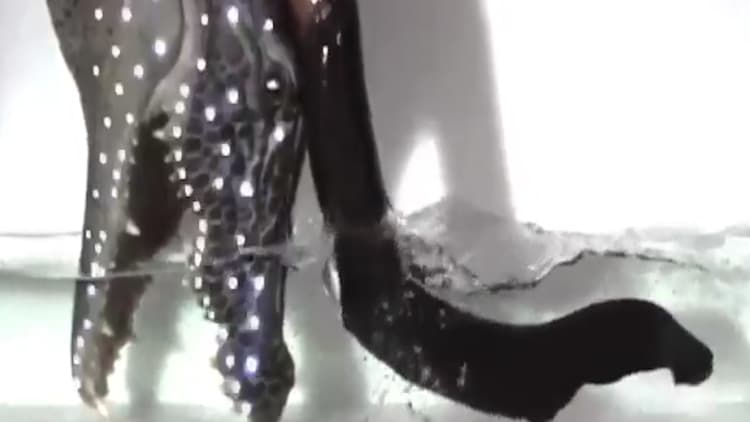
A clever biologist has just demonstrated that electric eels will aggressively protect themselves if threatened by predators.
The slow-motion video above shows an electric eel jumping out of water and shocking a dummy alligator head it perceives to be a threat.
The alligator head even lights up when the eel shocks it — the lights are flash emitting diodes that are powered by the electricity the eel is sending through the head.
The experiment and video are the work of the work of Vanderbilt University biologist Kenneth Catania, who argues his experiment confirms a 200-year-old field observation that had been disputed. In 1807, the naturalist Alexander von Humboldt wrote that he had seen electric eels display similar behavior while he was traveling through South America. Von Humboldt said local fisherman used the eels' electric leaps to their advantage. The men would lead horses into the water, and the eels would begin shocking them until the snake-like fish had exhausted themselves. The men would then pluck the tired eels from the water.
Attacking the predator directly delivers a greater shock than the animal would be able to send through water, as the water would cause the voltage to dissipate.
Catania published his findings in the Proceedings of the National Academy of Sciences on Monday.
Despite laying to rest two-century-old mystery, Catania still has questions about the eels' behavior.
"For example, why would electric eels take the offensive, rather than retreating from a potential threat?" Catania wrote in the study. "Why would not hundreds of volts delivered to the surrounding water be a sufficient defense, without the need for a directed attack? What is the likely effect of this behavior on a potential predator? How might the behavior have evolved? Finally, what do these findings suggest about Humboldt's account from 1800."
In addition, scientists still do not understand how eels manage to avoid electrocuting themselves.


